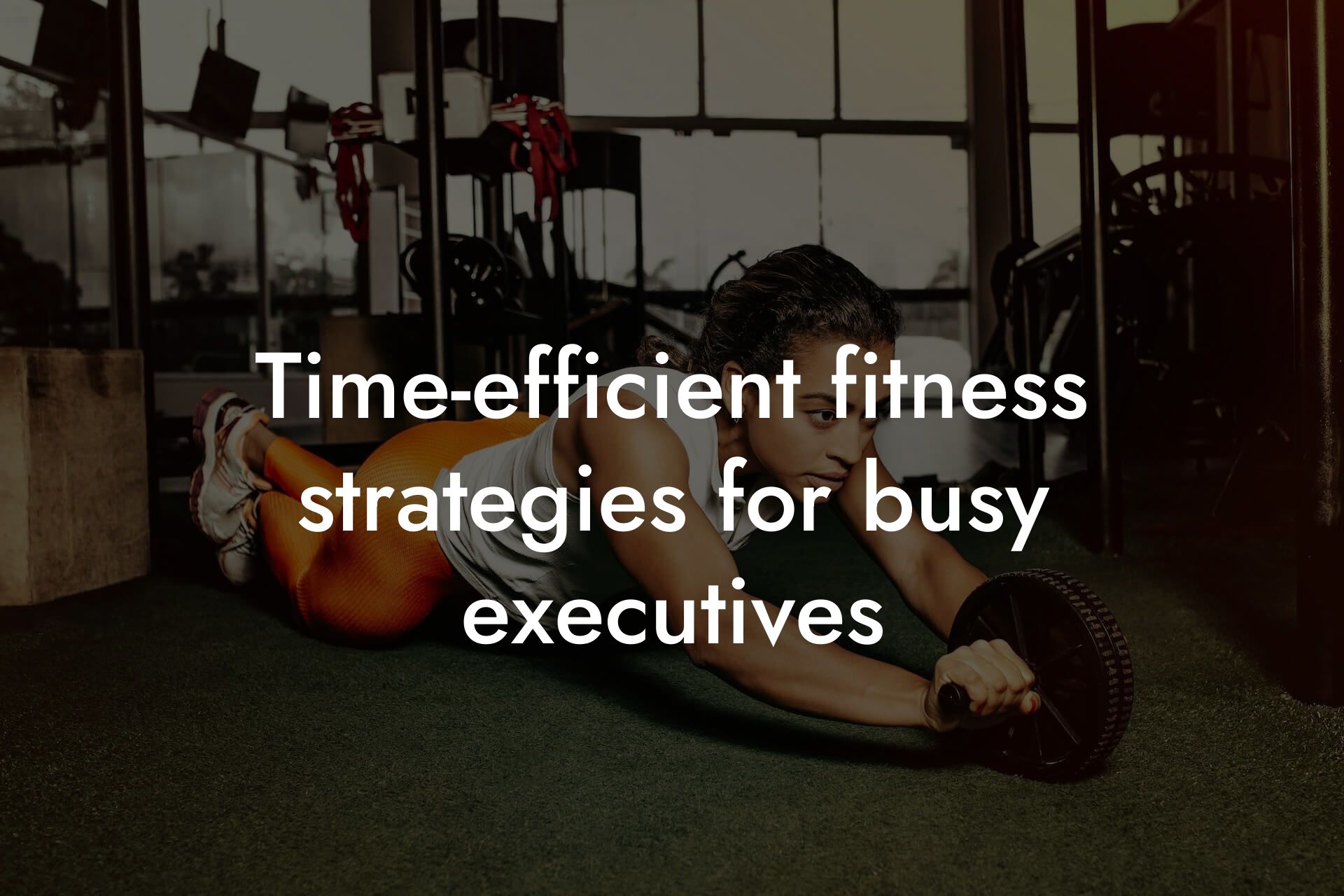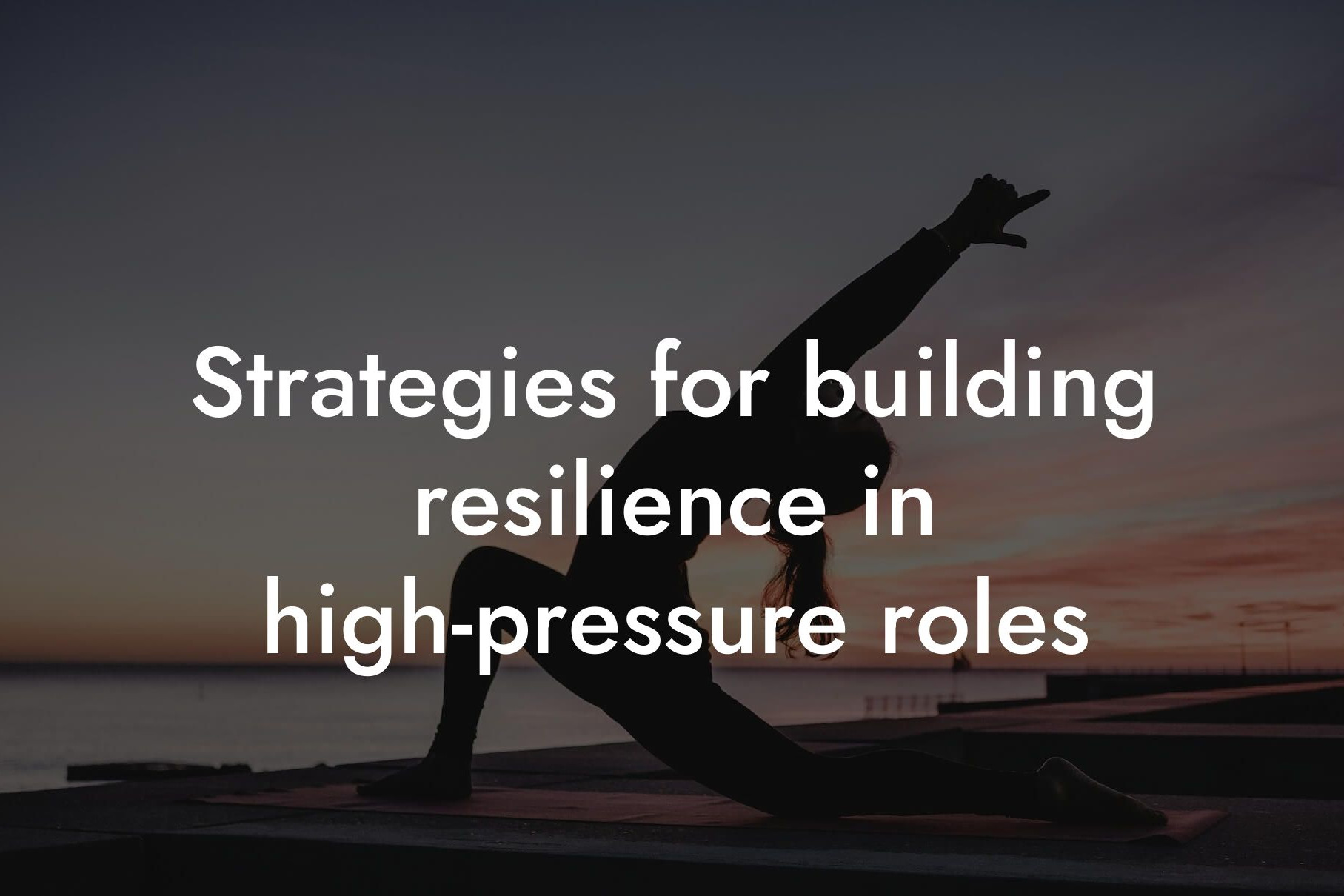As a high-earning professional, you're no stranger to hard work and dedication. However, with great success comes great pressure, and it's easy to get caught up in the hustle and bustle of running a business. Burnout is a real and serious threat to your physical and mental well-being, and it's essential to recognize the signs before it's too late. Common symptoms of burnout include chronic fatigue, insomnia, mood swings, and a lack of motivation. If you're experiencing any of these symptoms, it's time to take a step back and assess your situation.
Table of Contents
- The Consequences of Burnout on Your Business and Personal Life
- Identifying the Sources of Stress in Your Life
- Developing a Self-Care Routine
- Setting Boundaries and Learning to Say No
- Seeking Support and Building a Network
- Using Technology to Your Advantage
- Conducting Regular Self-Assessments and Making Adjustments
- Frequently Asked Questions
The Consequences of Burnout on Your Business and Personal Life
Burnout can have far-reaching consequences that affect not only your personal life but also your business. When you're burned out, you're less productive, less focused, and less able to make sound decisions. This can lead to mistakes, missed opportunities, and a decline in overall performance. Furthermore, burnout can also affect your relationships with colleagues, friends, and family, leading to feelings of isolation and disconnection. It's crucial to take proactive steps to manage stress and prevent burnout before it's too late.
Identifying the Sources of Stress in Your Life
To effectively manage stress and prevent burnout, you need to identify the sources of stress in your life. This can include work-related stressors such as long hours, high expectations, and conflicting priorities, as well as personal stressors such as family responsibilities, financial concerns, and health issues. Take the time to reflect on your life and identify the areas that are causing you the most stress. Once you have a clear understanding of the sources of stress, you can begin to develop strategies to mitigate them.
Developing a Self-Care Routine
As a CEO, it's easy to put the needs of your business first, but neglecting your own needs can have serious consequences. Developing a self-care routine is essential to managing stress and preventing burnout. This can include activities such as exercise, meditation, and spending time with loved ones. It's also important to prioritize sleep, nutrition, and relaxation. By taking care of your physical and mental health, you'll be better equipped to handle the demands of running a business.
Setting Boundaries and Learning to Say No
As a high-earning professional, you're likely accustomed to taking on a lot of responsibility and saying yes to every opportunity that comes your way. However, this can lead to burnout and exhaustion. It's essential to set boundaries and learn to say no to requests that are not aligned with your priorities or values. This can include delegating tasks to colleagues, setting realistic expectations with clients, and prioritizing your own needs and desires. By setting boundaries and saying no, you'll be able to conserve your energy and focus on what's truly important.
Seeking Support and Building a Network
No one person can do it all alone, and seeking support is a crucial aspect of managing stress and preventing burnout. This can include building a network of colleagues, friends, and mentors who can offer guidance, support, and encouragement. It's also important to seek out professional help if needed, such as therapy or coaching. By building a support network, you'll be able to share the load and gain new perspectives on your challenges.
Using Technology to Your Advantage
In today's fast-paced digital world, technology can be both a blessing and a curse. While it's easy to get caught up in the constant stream of notifications and emails, it's also possible to use technology to your advantage. This can include using productivity apps to stay organized, scheduling tools to manage your time, and communication platforms to stay connected with colleagues and clients. By leveraging technology, you'll be able to streamline your workflow, reduce stress, and increase productivity.
Conducting Regular Self-Assessments and Making Adjustments
Finally, it's essential to conduct regular self-assessments to monitor your stress levels and make adjustments as needed. This can include taking the time to reflect on your goals, priorities, and values, as well as assessing your physical and mental health. By regularly checking in with yourself, you'll be able to identify areas for improvement and make changes to prevent burnout. This can include adjusting your workload, setting new boundaries, or seeking out new opportunities for growth and development.
Managing stress and preventing burnout as a CEO requires a proactive and holistic approach. By recognizing the signs of burnout, identifying the sources of stress, developing a self-care routine, setting boundaries, seeking support, using technology to your advantage, and conducting regular self-assessments, you'll be able to maintain your physical and mental well-being while achieving success in your business. Remember, taking care of yourself is not a luxury, it's a necessity. By prioritizing your health and well-being, you'll be able to perform at your best and achieve your goals.
At Tano Performance Group, we understand the importance of maintaining a healthy and balanced lifestyle. Our DEXA machine provides a comprehensive body assessment, giving you the information you need to make informed decisions about your health and fitness. By combining our expertise with your commitment to self-care, you'll be able to achieve optimal performance in both your personal and professional life.
Frequently Asked Questions
What are the common signs of burnout as a CEO?
Burnout as a CEO can manifest in various ways, including chronic fatigue, insomnia, digestive problems, headaches, and mood swings. You may also experience a sense of detachment, cynicism, and reduced performance. Additionally, you may feel like you're constantly "on" and unable to disconnect from work, leading to a sense of exhaustion and depletion.
How does stress affect my physical appearance as a CEO?
Chronic stress can have a significant impact on your physical appearance, including weight gain or loss, acne, hair loss, and premature aging. Stress can also lead to poor sleep quality, which can cause puffy eyes, dark circles, and a dull complexion. Furthermore, stress can weaken your immune system, making you more susceptible to illnesses and infections.
What are the consequences of ignoring stress and burnout as a CEO?
Ignoring stress and burnout can have severe consequences on your physical and mental health, relationships, and business performance. It can lead to decreased productivity, poor decision-making, and strained relationships with colleagues, family, and friends. In extreme cases, burnout can lead to depression, anxiety, and cardiovascular disease.
How can I prioritize self-care as a busy CEO?
Prioritizing self-care as a busy CEO requires intention and commitment. Start by scheduling time for yourself, whether it's a morning meditation practice, a lunchtime workout, or a relaxing bath before bed. Learn to say "no" to non-essential tasks and delegate responsibilities to free up time for self-care. Additionally, make healthy choices, such as eating a balanced diet and getting enough sleep.
What are some effective stress-reducing techniques for CEOs?
Effective stress-reducing techniques for CEOs include mindfulness meditation, deep breathing exercises, and yoga. Regular exercise, such as cardio or strength training, can also help reduce stress and anxiety. Additionally, practices like journaling, reading, and spending time in nature can help calm the mind and reduce stress.
How can I maintain a healthy work-life balance as a CEO?
Maintaining a healthy work-life balance as a CEO requires setting clear boundaries and prioritizing your personal life. Establish a routine that allows for time with family and friends, and make time for activities that bring you joy and relaxation. Learn to disconnect from work-related tasks during non-work hours, and avoid checking work emails or taking work calls during personal time.
What are the benefits of taking breaks and practicing self-care as a CEO?
Taking breaks and practicing self-care as a CEO can have numerous benefits, including increased productivity, improved focus, and enhanced creativity. Self-care can also boost your mood, reduce stress and anxiety, and improve your overall well-being. Additionally, taking breaks can help you recharge and return to work with renewed energy and enthusiasm.
How can I delegate tasks effectively to reduce stress and burnout?
Delegating tasks effectively requires identifying tasks that can be delegated, identifying the right person for the task, and providing clear instructions and expectations. It's also essential to establish a system of accountability and provide ongoing support and feedback. By delegating tasks, you can free up time and energy to focus on high-priority tasks and reduce feelings of overwhelm and burnout.
What are some common causes of burnout in CEOs?
Common causes of burnout in CEOs include excessive workload, lack of control, poor work-life balance, and lack of social support. Additionally, CEOs may experience burnout due to conflicting values, unclear expectations, and lack of recognition or reward. Perfectionism, high expectations, and fear of failure can also contribute to burnout.
How can I recognize the signs of burnout in my team members?
Recognizing the signs of burnout in team members requires paying attention to changes in behavior, mood, and performance. Look for signs such as fatigue, irritability, and decreased motivation. Also, pay attention to changes in attendance, tardiness, and absenteeism. Additionally, notice if team members are struggling to meet deadlines, making mistakes, or seem disengaged.
What are some strategies for preventing burnout in my team?
Strategies for preventing burnout in your team include promoting work-life balance, providing opportunities for growth and development, and recognizing and rewarding contributions. Additionally, encourage open communication, provide resources for stress management, and foster a positive work culture. Regularly check-in with team members, provide feedback, and help them prioritize tasks and manage workload.
How can I prioritize my physical health as a CEO?
Prioritizing your physical health as a CEO requires making healthy choices, such as eating a balanced diet, exercising regularly, and getting enough sleep. It's also essential to stay hydrated, limit caffeine and alcohol, and avoid unhealthy habits like smoking. Regular health check-ups and screenings can also help identify potential health issues early on.
What are the benefits of regular exercise for CEOs?
Regular exercise provides numerous benefits for CEOs, including improved physical health, increased energy, and enhanced mental clarity. Exercise can also reduce stress and anxiety, improve mood, and boost creativity. Additionally, regular exercise can improve sleep quality, increase productivity, and enhance overall well-being.
How can I manage my time more effectively as a CEO?
Managing your time more effectively as a CEO requires prioritizing tasks, setting clear goals, and establishing a routine. Use tools like calendars, to-do lists, and time-tracking software to stay organized and focused. Learn to say "no" to non-essential tasks, delegate responsibilities, and avoid multitasking. Take regular breaks to recharge and maintain productivity.
What are some common time management mistakes CEOs make?
Common time management mistakes CEOs make include overcommitting, procrastination, and multitasking. Additionally, CEOs may fail to prioritize tasks, underestimate the time required for tasks, and neglect to take breaks. Poor time estimation, inadequate delegation, and lack of boundaries can also lead to poor time management.
How can I maintain a positive mindset as a CEO?
Maintaining a positive mindset as a CEO requires cultivating a growth mindset, practicing gratitude, and focusing on the positive aspects of your business and life. Surround yourself with positive influences, practice self-compassion, and celebrate your achievements. Additionally, prioritize activities that bring you joy and help you relax, such as reading, meditation, or spending time in nature.
What are some effective strategies for managing stress during times of crisis?
Effective strategies for managing stress during times of crisis include staying informed, but avoiding excessive news consumption. Practice self-care, prioritize tasks, and focus on what you can control. Maintain open communication with your team, and provide support and resources as needed. Additionally, take breaks, practice relaxation techniques, and seek support from colleagues, mentors, or professionals.
How can I build resilience as a CEO?
Building resilience as a CEO requires developing a growth mindset, practicing self-awareness, and learning from failures. Develop a support network, prioritize self-care, and focus on the present moment. Additionally, practice gratitude, reframe challenges as opportunities, and develop coping skills like mindfulness and relaxation techniques.
What are some common mistakes CEOs make when it comes to stress management?
Common mistakes CEOs make when it comes to stress management include neglecting self-care, ignoring the signs of burnout, and failing to prioritize tasks. Additionally, CEOs may underestimate the impact of stress on their physical and mental health, and fail to seek support from colleagues, mentors, or professionals. Poor time management, inadequate delegation, and lack of boundaries can also exacerbate stress.
How can I prioritize my mental health as a CEO?
Prioritizing your mental health as a CEO requires recognizing the importance of mental well-being, and taking proactive steps to maintain it. Practice self-awareness, prioritize self-care, and seek support from colleagues, mentors, or professionals. Develop coping skills like mindfulness and relaxation techniques, and prioritize activities that bring you joy and relaxation.
What are the benefits of seeking support as a CEO?
Seeking support as a CEO provides numerous benefits, including reduced stress and anxiety, improved mental health, and increased productivity. Support from colleagues, mentors, or professionals can also provide new perspectives, guidance, and resources to help you navigate challenges. Additionally, seeking support can help you build resilience, improve relationships, and enhance overall well-being.
How can I create a healthy work culture as a CEO?
Creating a healthy work culture as a CEO requires prioritizing employee well-being, promoting work-life balance, and fostering open communication. Encourage teamwork, recognize and reward contributions, and provide opportunities for growth and development. Additionally, promote a culture of empathy, respect, and inclusivity, and provide resources for stress management and mental health support.
Here are some related articles you might love...
- The importance of DEXA scans for business leaders
- Time-efficient fitness strategies for busy executives
- Strategies for building resilience in high-pressure roles
- The connection between physical fitness and leadership effectiveness
- Maintaining fitness during intense work travel
- The impact of body composition on executive presence
- How to integrate exercise into a packed executive schedule
- Nutrition tips for peak performance in the boardroom
- How physical fitness can boost executive decision-making
Zak Faulkner
Zak Faulkner is a leading authority in the realm of physical health and body composition analysis, with over 15 years of experience helping professionals optimise their fitness and well-being. As one the experts behind Tano Performance Group, Zak has dedicated his career to providing in-depth, science-backed insights that empower clients to elevate their physical performance and overall health.
With extensive knowledge of DEXA technology, Zak specializes in delivering comprehensive body assessments that offer precise data on body fat, muscle mass, bone density, and overall physique. His expertise enables individuals to make informed decisions and achieve their fitness goals with accuracy and confidence. Zak’s approach is rooted in a deep understanding of human physiology, combined with a passion for helping clients unlock their full potential through personalised strategies.
Over the years, Zak has earned a reputation for his commitment to excellence, precision, and client-focused service. His guidance is trusted by top professionals who demand the best when it comes to their health. Whether advising on fitness programs, nutritional strategies, or long-term wellness plans, Zak Faulkner’s insights are a valuable resource for anyone serious about taking their health and fitness to the next level.
At Tano Performance Group, Zak continues to lead our Content Team revolutionising how professionals approach their physical health, offering unparalleled expertise that drives real results.




